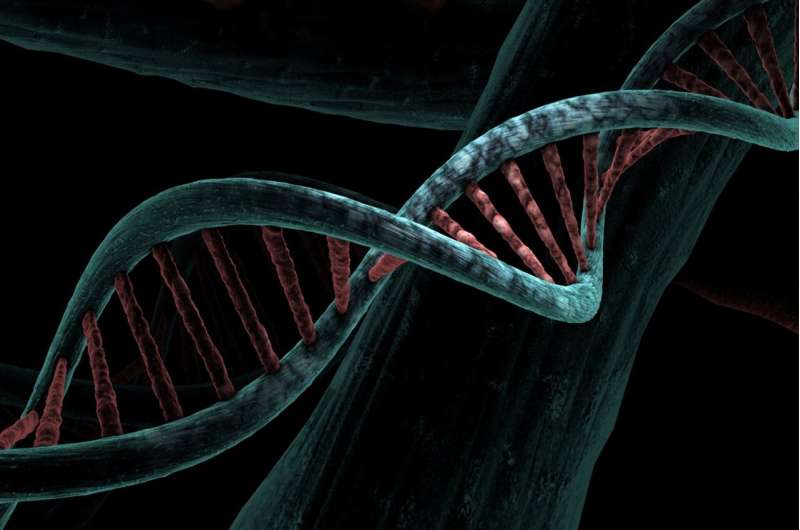Now, a study led by researchers at Washington University School of Medicine in St. Louis shows that such newly acquired mutations interact with our inherited mutations—those passed down by our parents—in important ways that influence a person’s lifetime cancer risk. Understanding such interactions could guide the development of new methods for early detection and prevention of cancer.
The research, published in Nature Genetics, focused specifically on the risk of blood cancers such as acute myeloid leukemia (AML), although interactions between inherited and acquired mutations likely have roles in other types of cancer.
Inherited mutations are carried in the egg and sperm and are therefore present in every cell starting at birth, whereas acquired mutations accumulate gradually with age in different cells. Led by Kelly Bolton, MD, Ph.D., an assistant professor of medicine in the Division of Oncology at WashU Medicine and the study’s senior author, the research team set out to understand how interactions between these two types of mutations influence a person’s risk of developing blood cancer.

